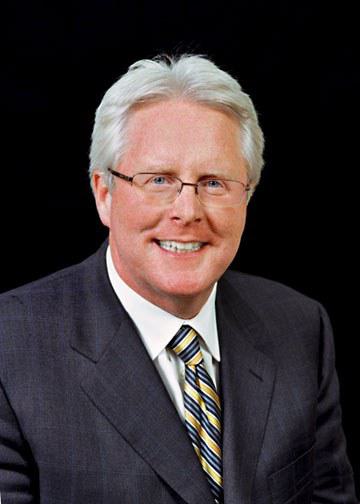$4 Mil. Construction-Accident Verdict Allowed to Stand

By Asher Hawkins of the Legal staff

Ken Fulginiti, Esq.

Tom Duffy, Esq.
After being reversed by the Pennsylvania Supreme Court, a Superior Court panel has on remand allowed to stand the $4 million verdict a Philadelphia jury awarded in 2002 to a construction worker injured on the job.
In its most recent opinion in Straub v. Cherne Industries, the panel hinted that it believes the "sophisticated user" defense is not viable in a negligence action, but did not offer a solid conclusion on the issue.
The case began when Douglas Straub claimed he was injured by an industrial sewage pipe plug because Cherne, the manufacturer, negligently failed to test the product in the field, failed to include a pressure-relief valve and provided an inadequate manual for its operation.
The jurors in Straub found that Cherne was negligent as to the plug's design and product warnings, awarding Straub $4 million and his wife, Carol, $500,000. But they rejected Straub's claim that Cherne's product was defective.
The Straub jury had been told by the trial court that it could find Cherne liable on either, both or neither cause of action.
In his 2003 lead opinion in Phillips v. Cricket Lighters, Chief Justice Ralph J. Cappy argued that the failure of a particular design-defect claim at trial does not mean that a negligent-design claim must fail as well.
Cappy reasoned in Phillips that strict products liability and negligence claims should be subject to separate analyses because the doctrine of strict liability does not concern itself with the conduct of the manufacturer (a determining factor in negligence law).
But the Superior Court panel in Straub, in a 2004 memorandum opinion, said it didn't have to follow the high court's 2003 ruling because Phillips "did not generate a majority opinion."
In an August 2005 decision that sidestepped the question of whether strict products liability and negligence claims are separate causes of action for the purposes of design-defect cases, a six-justice majority concluded that Cherne had failed to follow Pennsylvania Rule of Civil Procedure 227.1, which directs that if those seeking post-trial relief - including a judgment n.o.v. - do not object at trial to the issue upon which their appeal is based, that issue is waived.
The panel that has heard Straub on both occasions consisted of Senior Judges Justin M. Johnson and Zoran Popovich and Judge Maureen Lally-Green.
In the most recent hearings concerning the case, Cherne argued that the Straub jury should have been instructed as to the sophisticated user defense, in which a defendant manufacturer claims that it adequately warned an intermediary purveyor of the dangers associated with use of its product and expected the intermediary would in turn warn the product's ultimate user.
The panel dismissed that argument on procedural grounds, saying Cherne had failed to sufficiently preserve the issue for appeal.
But in a lengthy footnote, the judges discussed the sophisticated user defense and its possible application against claims of negligence.
The defense is provided for in the comments to Section 388 of the Restatement (Second) of Torts, which deals with products "known to be dangerous for intended use."
"Comment N" to Section 388 notes that the manufacturer of a product may not be able to warn the ultimate user of its associated dangers, instead educating an intermediary who intends to sell that product to the ultimate user.
The Superior Court discussed the sophisticated user defense in its 1993 opinion in Phillips v. A.P. Green Refractories Corp.
"After disposing of the [underlying] appeal on other grounds, we held in dicta that the sophisticated user defense applies in strict liability claims as well as in negligence claims," the Straub panel's most recent opinion stated in its footnote. "Our Supreme Court affirmed, but did not adopt this court's reasoning that the sophisticated user defense applies in strict liability claims. Instead, the court noted that this court's discussion of the sophisticated user defense was dicta."
Counsel for Cherne had argued that in other cases, Pennsylvania courts have positively cited to Section 388.
"Our review of the jurisprudence in Pennsylvania reveals that no appellate court of this commonwealth has authoritatively stated that the sophisticated user defense, the subject of 'Comment N' to Section 388, is viable in a negligence action," that footnote continues later.
As it dismissed Cherne's appeal on procedural grounds, the panel declined to offer an opinion on the sophisticated user defense issue.
Daniel Hessel of Cozen O'Connor, who has represented Cherne at the appellate level, said his client is considering whether to appeal and possibly raise before the justices the sophisticated user defense issue.
Hessel said he does not believe the high court has previously ruled on whether the sophisticated user defense applies in the context of a negligence claim.
Straub has been represented, both below and on appeal, by Thomas Duffy, Patrick Keenan and Kenneth Fulginiti of Duffy & Keenan.
Fulginiti said that with delay damages included, the Straub verdict should be currently worth roughly $6.3 million.
"It's been a long time coming - this accident happened in April 1998," Fulginiti said. He added later, "Looks like we're at the end of the line here."

